8. Donnie Brasco (2007)
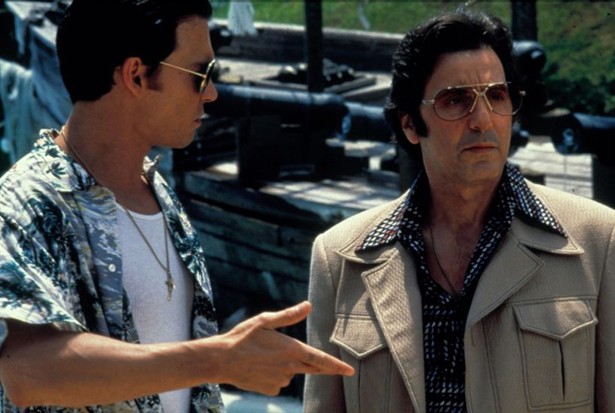
Mike Newell’s crime biopic based on the true story of Joseph D. Pistone (Johnny Depp) follows an FBI undercover agent, under the pseudonym Donnie Brasko a.k.a. “The Jewel Man”, as he infiltrates the Mafia Bonanno crime family in New York City during the 1970s.
Brasco gets into the family through winning the trust of an aging hit-man, Benjamin “Lefty” Ruggiero (Al Pacino), who vouches for him. The two become very close friends as Donnie falls deeper into the Mafia, at the expense of his real family at home. Soon he realises that he is more like a criminal than a federal agent and becomes very confused since his undercover actions can ironically hurt his one true friend, Lefty.
The densely packed film shows a pseudo-father-son relationship bloom in the absence of understanding at home, shady business manoeuvers, back-stabbing scenes from both ends of the spectrum – from wearing a wire, to “wacking” the boss so as to absorb the power vacuum.
The clever and constantly moving thriller is honest but strangely sympathetic to Lefty, who is only “a spoke in the wheel” despite giving years of his life to the cause. The film was nominated for an Academy Award for Best Adapted Screenplay (Paul Attanasio).
7. House Of Flying Daggers (2004)
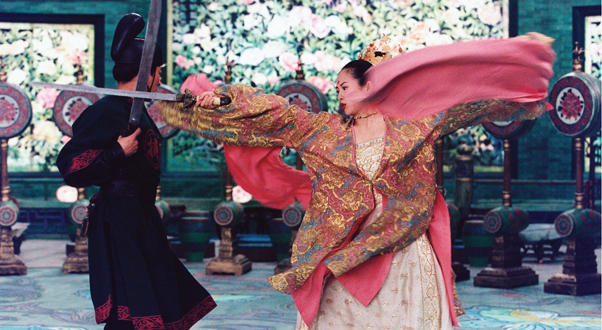
Zhang Yimou’s wuxia film, which is set in 859 AD, follows two police officers, Leo (Andy Lau) and Jin (Takeshi Kaneshiro) who must take out the mysterious leader of the rebel group – The House Of Flying Daggers – who battle the corrupt government and protect the people, within ten days.
The best friends find the rumoured blind daughter of the previous leader, Mei (Zhang Ziyi), and after Leo arrests her – Jin pretends to be a rebel sympathiser and rescues her from jail, while truly hoping that she leads him to the current leader.
Zhang Yimou’s strong, iconic colour-theory is once again utilised as he fills scenes with whites, greens, and yellows, together with the signature periodic Chinese costumes, props and decorations which were almost taken entirely from paintings from that era.
Yimou’s slow-motion fight sequences and character’s kinetic forces combine a martial arts epic with a thrilling romance with unexpected twists and elegant deception. The film was nominated for the Academy Award for Best Cinematography.
6. Reservoir Dogs (1992)
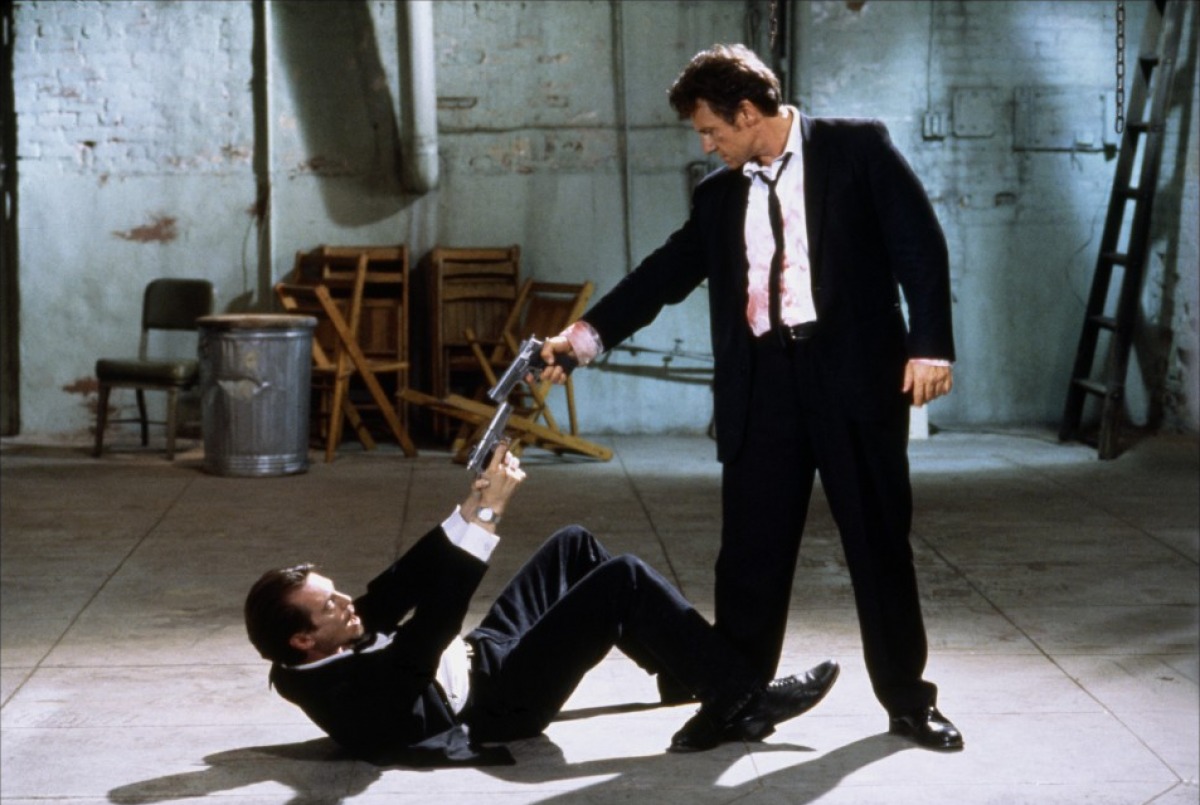
Quentin Tarantino’s directorial debut follows eight men before and after their botched diamond heist. All the characters are given pseudonyms like Mr. Orange (Tim Roth), Mr. Pink (Steve Buscemi), Mr. Blue (Edward Bunker), Mr. Brown (Quentin Tarantino), Mr. Blond (Michael Madsen) and Mr. White (Harvey Keitel) so as to protect their identity from each other. The others are mob boss Joe Cabot (Lawrence Tierney), the organizer of the heist, and his son and underboss, “Nice Guy” Eddie Cabot (Chris Penn).
Opening with a Tarantino trademark long discussion scene before his pop opening sequence about Madonna’s “Like A Virgin” and the ethics of tipping, the film soon skips straight into a post-heist bloody mess that is slowly explained through different character’s flashbacks and comments about what actually happened during the heist and why the police responded so quickly.
The characters rendezvous at an empty warehouse, with Orange bleeding profusely, White looking after him and Pink concluding the job was a setup and that one of them must be a rat. Once the psychopathic Blond arrives with a police officer hostage, they beat him in an attempt to discover who the informant is and how they can get out of this colossal mess.
5. Hard Boiled (1992)

Widely regarded as John Woo’s last Hong Kong film before his transition to Hollywood, the action-packed thriller follows Inspector “Tequila” Yuen (Chow Yun-fat), as he tries to capture the leader of the criminal triads, Johnny Wong (Anthony Wong), who is responsible for his partner’s (Bowie Lam) death. Initially unbeknownst to Tequila, the force has an undercover agent inside the mob – Alan (Tony Leung Chiu-Wai) who is one of the triad’s high-ranking assassins. Alan and Tequila team up for their common pursuit of taking down Wong’s crime syndicate.
Hard Boiled took 123 days to shoot and due to the long hours of filming the climatic hospital scene, where the two must rescue innocent civilians and new born babies from the maternity ward while fighting off a constant stream of mob hitmen, the crew became exhausted and opted for the last scene to be the prominent five-minute one-take scene.
This action-packed scene required Tequila and Alan to go into the elevator so they can face a whole new pack of assassins on the next floor; to do this, when the characters go into the elevator for twenty seconds, the lift did not actually shift floors. Instead, the cast had these twenty seconds to change the scenes of the hallway and set up new explosions and characters for them to fight – allowing the one-take scene to continue flawlessly.
4. Eastern Promises (2007)
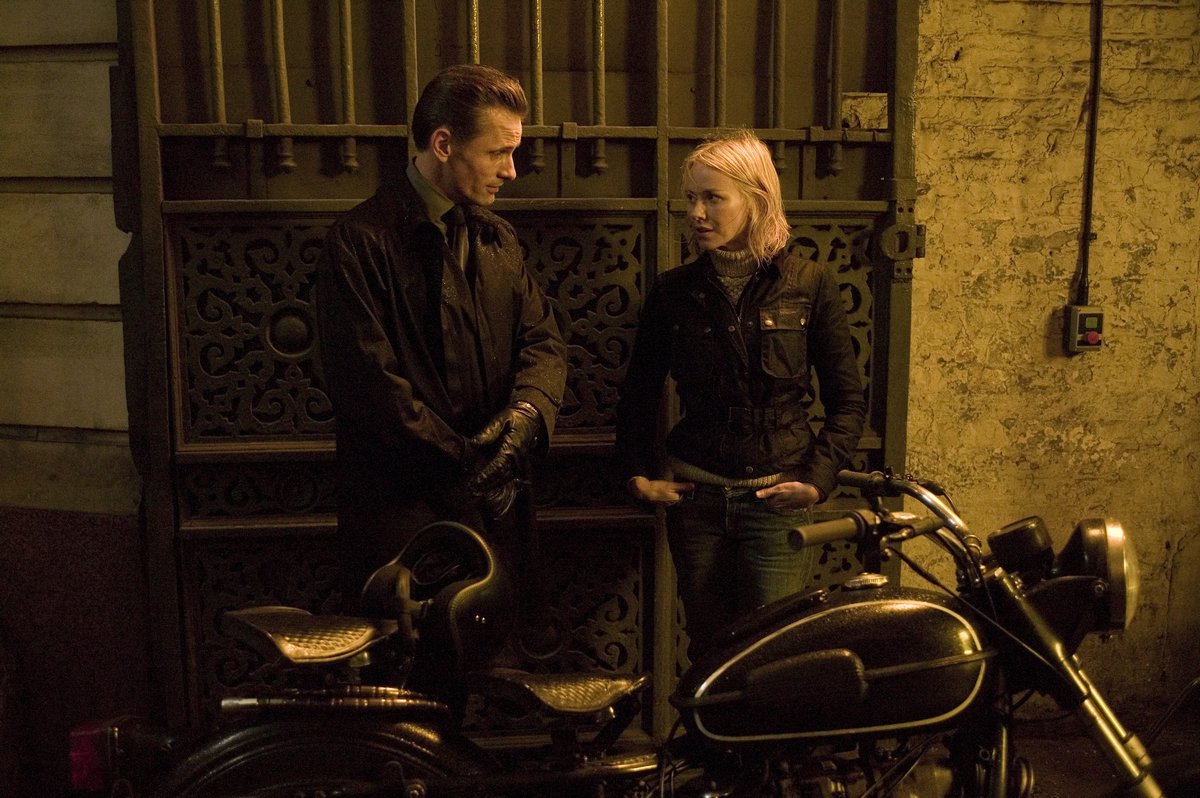
David Cronenberg’s crime gangster film follows Russian-British midwife, Anna (Naomi Watts), as she searches for the family of a drug-addicted 14-year old Russian prostitute who died during childbirth, so as to prevent her baby going into the system. She discovers a diary in the woman’s bag, written entirely in Russian – which she is not fluent in – and finds a business card for a Trans-Siberian restaurant close by.
The restaurant’s owner Semyon (Armin Mueller-Stahl) is also the leader of one of the biggest Russian Mafia families in London. Anna becomes enmeshed in their criminal world as she is threatened by the leader’s son Kirill (Vincent Cassel), and warned to back away by Kirill’s brooding driver and the family’s “cleaner” Nikolai (Viggo Mortensen). Kirill and Nikolai are close as Kirill tries to give his friend more and more responsibilities to help him get his “stars” to join the family.
A murderous family drama, the film is known for its choreographed, graphic violence, enigmatic plot twist and Cronenberg’s focus on analysing morality and the dead space between right and wrong, embodied by Anna and her family’s decisions, as well as Anna’s perception of Nikolai, who just lets these things happen.
The film received three Golden Globe nominations for Best Motion Picture – Drama, Best Original Score and a Best Actor. Mortensen was also nominated for Academy Award for Best Actor for his outstanding portrayal.
3. Serpico (1973)
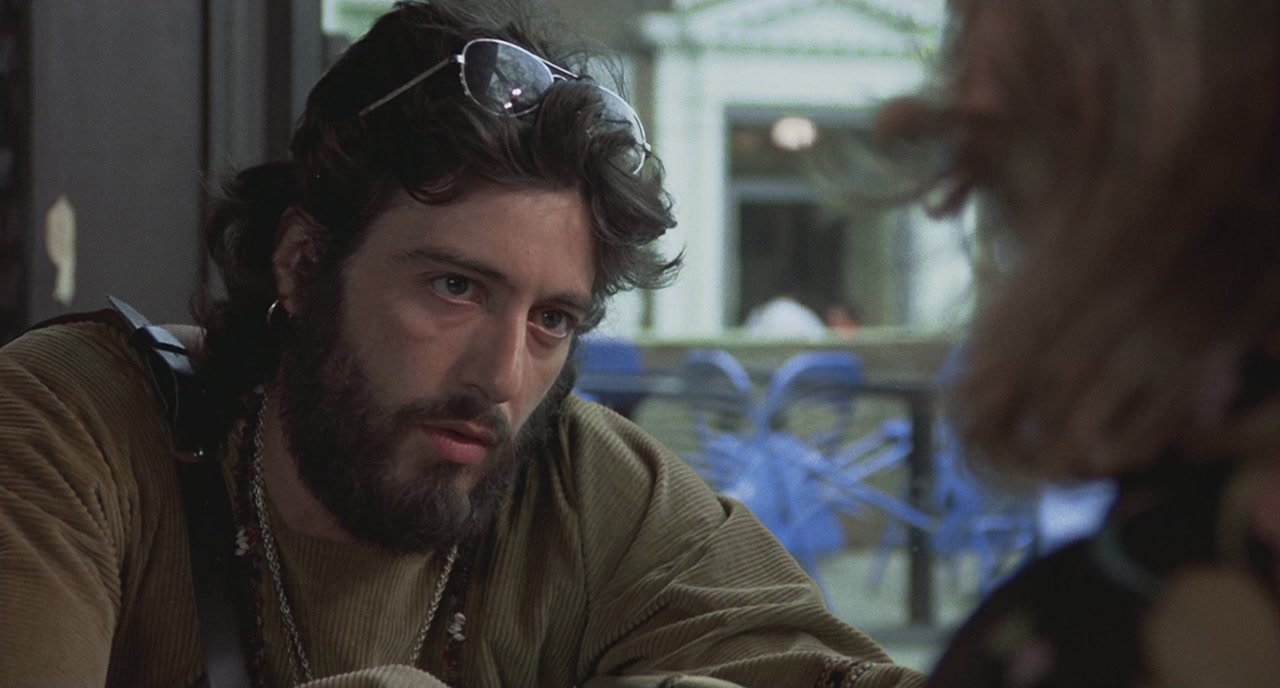
Sidney Lumet’s neo-noir crime is based on Peter Maas’s biography of NYPD officer Frank Serpico who went undercover to expose corruption in the police force from 1960 to 1972. At the beginning of the film, Serpico (Al Pacino) is promoted to plainclothes assignments, where he witnesses cops commit violence, take payoffs, and police corruption, Serpico wants to expose their crimes but his struggle leads to harassment, personal problems and death threats.
The original score was composed by Mikis Theodorakis, nominated for both the Grammy Award for Best Score Soundtrack for Visual Media and the BAFTA award for the Best Film Music. Lumet and Pacino were also nominated for BAFTAs, and the film was nominated for the Golden Globe Award for Best Motion Picture – Drama.
The film also received Academy Awards nominations for Best Actor and Best Adapted Screenplay. Pacino won his first Golden Globe award for Best Actor in 1974 for his performance in the film.
2. White Heat (1949)
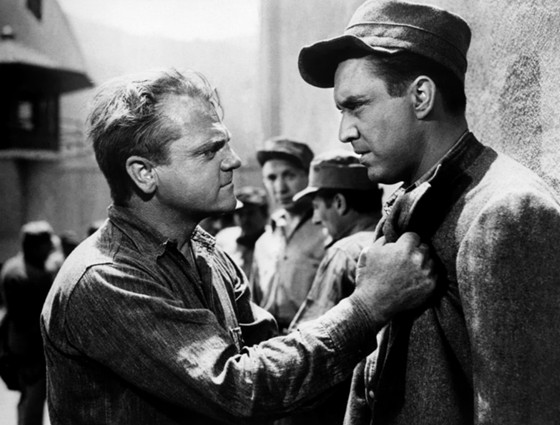
Raoul Walsh’s film noir, based on a story by Virginia Kellogg, follows psychotic, deranged criminal gang leader, Arthur “Cody” Jarrett (James Cagney) who confesses to a crime committed by an associate so he can serve a two-year-sentence in order to avoid a much longer sentence since the confessed crime provides him with a false alibi.
His scheme does not fool US Treasury investigator Philip Evans (John Archer), who sends an undercover agent, Hank Fallon (Edmond O’Brien) to Illinois State Penitentiary, where Cody is doing his time. Hank goes by the pseudonym “Vic Pardo”, and becomes bunkmates with Cody. He must gain Cody’s trust so as to find another criminal, the “Trader,” a fence who launders stolen money for Cody.
Considered to be one of the best, classic gangster films, the shady black-and-white cinematography and the tight plotline led the American Film Institute to recognise it in its “Ten Top Ten” list, as well as marking the quote “Made it, Ma! Top of the world!” as #18 on its list of the greatest movie quotes.
1. Infernal Affairs (2002)
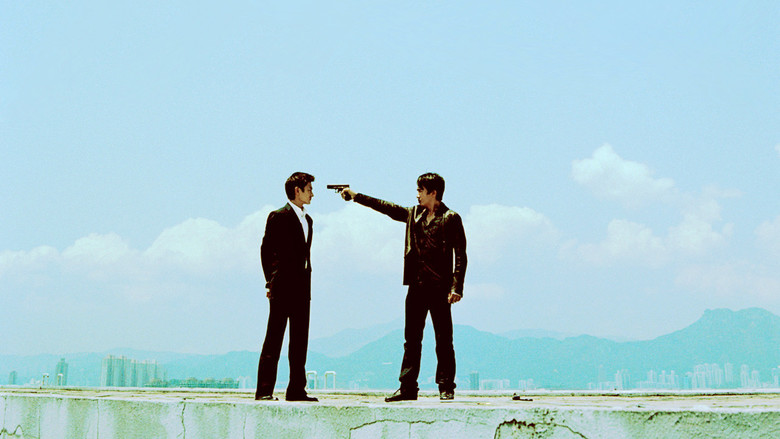
Andrew Lau and Alan Mak’s Hong Kong crime-thriller follows two police officers, Chen Wing-yan (Tony Leung Chiu-Wai), and Lau Kin-ming (Andy Lau) , who both go undercover for their respective superiors.
In the prologue, it is revealed that the triad boss, Hon Sam, sends a number of young gangsters, including Lau, to the police academy so as to become future moles.
Meanwhile, Chen also enrolls into the police academy, and is subsequently expelled so as to allow him to become an undercover agent in the Triad, only reporting directly to Superintendent Wong Chi-shing.
Each mole has been planted by the rival organisation to gain an advantage in intelligence over the other side. However, each mole slowly loses their real identity and forgets who they once were as they try to survive the turmoil of having lived a lie for so long.
With an ironic, original plot and long, tense build-ups before springing into action, and the emotional complexity brought by Leung and Lau create an intense, rare crime film that has influenced a spawn of remakes around the globe.
The most famous one is Martin Scorsese’s adaptation of the storyline to the Irish Mafia in his 2006 “The Departed”, starring Leonardo DiCaprio, Matt Damon, Jack Nicholson, Martin Sheen and which went on to win several awards, including the Academy Award for Best Picture.
Honourable Mention: The Departed (2006).
Author Bio: Susannah Farrugia is an undergraduate Psychology student at the University Of Malta. Her life is measured in films and television shows. She enjoys drawing scenes and designing posters based on the films she has seen.